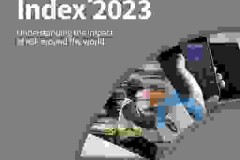TORONTO, Jan. 26, 2023 (GLOBE NEWSWIRE) -- While global freedom was already waning before COVID, the response from governments during the pandemic accelerated the loss of freedom worldwide, finds a new study released today by Canada’s Fraser Institute and the U.S.-based Cato Institute.
“During the pandemic, governments worldwide restricted freedom of movement, expression, assembly and other freedoms even more than in previous years,” said Fred McMahon, resident fellow at the Fraser Institute and co-author of this year’s Human Freedom Index.
While we take no position on the necessity of COVID policies, they unquestionably limited freedom. From 2019 to 2020 (the latest year of available data), 94.3 per cent of the world’s population experienced a decline in freedom.
But again, freedom was on the decline before COVID—the government response simply accelerated the decline. Between 2007 (the highpoint for human freedom) and 2019, freedom declined for 79 per cent of the world’s population.
The index measures personal freedom—the rule of law, safety and security, identity and relationships (i.e. the freedom to choose your relationship partner), freedom of movement, speech, assembly and religion—alongside economic freedom, the ability of individuals to make their own economic decisions.
Switzerland, once again, tops this year’s freedom ranking followed by New Zealand, Estonia, Denmark, Ireland, Sweden, Iceland, Finland, the Netherlands and Luxembourg. The five least-free countries are (in descending order) Egypt, Iran, Venezuela, Yemen and Syria.
Overall worldwide rankings for other significant countries include Japan (16), Germany (18), the United Kingdom (20), the United States (23), South Korea (30), France (42), Argentina (74), South Africa (77), Brazil (80), India (112), Russia (119), Nigeria (124) and China (152).
Regionally, Western Europe, North America (Canada and the United States) and Oceania have the highest levels of freedom while the Middle East and North Africa, sub-Saharan Africa and South Asia have the lowest levels.
Crucially, people in freer countries are more prosperous than those in less-free countries. For example, the average per-capita income for the top-quartile countries on the index was US$48,644 compared to US$11,566 for the least-free quartile in 2020.
“When government limits the ability of people to move, assemble and speak freely, people are less able to the lives they want to live,” said Ian Vásquez, report co-author and director of the Cato Institute’s Center for Global Liberty and Prosperity.
The complete index, a joint project of the Fraser Institute and the Cato Institute, is available as a free PDF download at www.fraserinstitute.org. The co-authors of the report are Ian Vasquez, Vice President, International Studies, Cato Institute, Ryan Murphy, associate professor, Bridwell Institute for Economic Freedom, Southern Methodist University, and Guillermina Sutter Schneider, data scientist and research manager, Center for Global Liberty and Prosperity, Cato Institute.
The 10 freest and the least-free countries in 2020:
| The 10 freest jurisdictions | The 10 least-free countries |
| 1. Switzerland 2. New Zealand 3. Estonia 4. Denmark 5. Ireland 6. Sweden 7. Iceland 8. Finland 9. Netherlands 10. Luxembourg | 156. Burundi 157. Iraq 157. Somalia 159. Saudi Arabia 160. Sudan 161. Egypt 162. Iran 163. Venezuela 164. Yemen 165. Syria |
MEDIA CONTACT:
Fred McMahon, Dr. Michael A. Walker Research Chair in Economic Freedom
Fraser Institute
To arrange media interviews or for more information, please contact:
Mark Hasiuk, Fraser Institute
(604) 688-0221 ext. 517
mark.hasiuk@fraserinstitute.org
Follow the Fraser Institute on Twitter and Facebook
The Fraser Institute is an independent Canadian public policy research and educational organization with offices in Vancouver, Calgary, Toronto, Montreal and Halifax and ties to a global network of think-tanks in 87 countries. Its mission is to improve the quality of life for Canadians, their families and future generations by studying, measuring and broadly communicating the effects of government policies, entrepreneurship and choice on their well-being. To protect the Institute’s independence, it does not accept grants from governments or contracts for research. Visit www.fraserinstitute.org

















